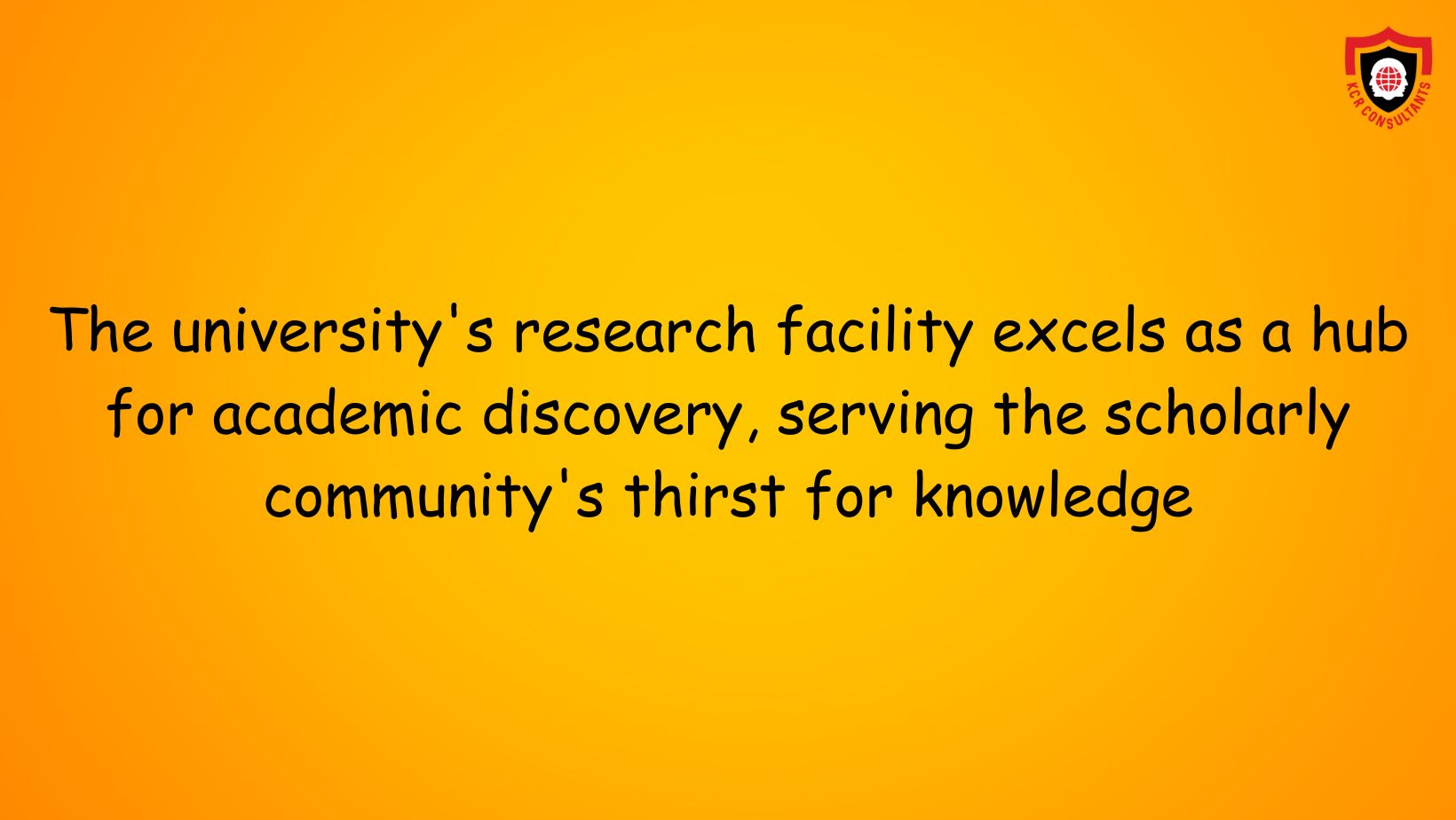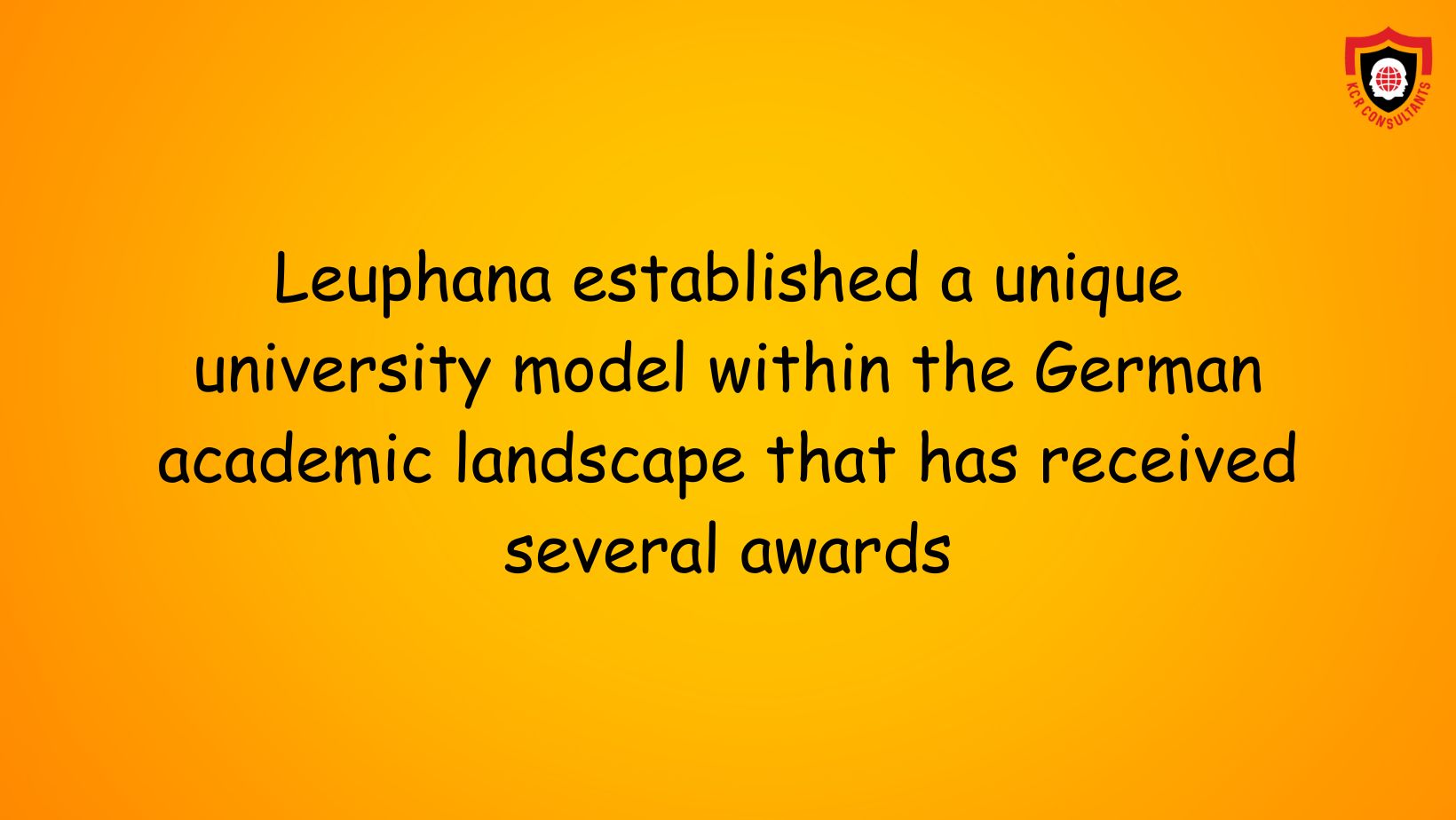INTRODUCTION
Leuphana University Lüneburg is an esteemed public institution of higher education situated in the city of Lüneburg, located in the state of Lower Saxony, Germany.
The University was established in 1946 as an institution focused on teacher education, commonly referred to as a college of education or Pädagogische Hochschule.
It distinguishes itself among European universities by providing a liberal arts program through its bachelor’s program, known as Studium Individuale. The university has been officially recognized as a “foundation under public law”
Leuphana College offers a comprehensive undergraduate program that encompasses eight academic departments and two specialized programs for teacher training. In 2008, the institution of higher education was established, offering a unique educational model that combines both masters and doctoral degree programs.
Furthermore, there exists a cross-departmental research facility and a specialized institution offering advanced study programs, such as those focused on corporate collaboration.
MISSION STATEMENTS
The growth of Leuphana University of Lüneburg is based on a broad idea of education and research. It sees itself as
- HUMANISTIC UNIVERSITY – Leuphana University adopts an educational approach that integrates personal growth and professional skill development, emphasizing applying the information in practical settings.
- SUSTAINABLE UNIVERSITY – Education and research are pivotal in fostering sustainable societal development. It facilitates the cultivation of aptitudes in managing complexity, engaging in interdisciplinary problem-solving, fostering independent and self-directed learning and fostering the inclination and capacity to undertake social responsibility.
- ENTREPRENEURIAL UNIVERSITY – The institution aims to cultivate individuals with responsible and entrepreneurial traits characterized by inventiveness, reflexivity, determination and abilities to influence and shape society effectively. It significantly addresses societal issues through research, studies, advanced education and providing scientific services.
NAME ORIGIN
The name “Leuphana” originates from a historical habitation situated along the Elbe River, which was documented in a geographical compendium authored by Ptolemy during the 2nd century.
The university embodies the ethos of inquiry and knowledge acquisition akin to that advocated by Ptolemy. The individuals express a desire to continue acquiring knowledge, similar to the protagonist and each has a moniker derived from a location he referenced.
SCHOOLS & INSTITUTES
There are a total of five schools,
SCHOOL OF EDUCATION
- Institute of Educational Sciences (IBIWI)
- Institute of English Studies (IES)
- Institute of Ethics and Theological Research (IET)
- Institute of Fine Arts, Music and Education (IKMV)
- Institute of German Language and Literature Studies (IDD)
- Institute of Mathematics and its Didactics (IMD)
- Institute of Psychology (IFP)
- Institute of Social Work and Social Pedagogy (IFSP)
- Institute of Physical Activity, Sports and Health (IBSG)
- Institute of Social Science Education (ISWB)
SCHOOL OF CULTURE AND SOCIETY
- Institute of Culture and Aesthetics of Digital Media (ICAM)
- Institute of History and Literary Cultures (IGL)
- Institute of Urban and Cultural Area Research (IFSK)
- Institute of Philosophy and Art History (IPK)
- Institute of Sociology and Cultural Organization (ISCO)
SCHOOL OF SUSTAINABILITY
- Centre for Sustainability Management (CSM)
- Institute of Ecology (IE)
- Institute of Ethics and Transdisciplinary Sustainability Research (IETSR)
- Institute of Education and Psychology (ISEP)
- Institute of Sustainable Chemistry (INSC)
- Institute of Sustainability Governance (INSUGO)
- Social-Ecological Systems Institute (SESI)
SCHOOL OF PUBLIC AFFAIRS
- Institute of Political Science (IPW)
- Leuphana Law School (LLS)
- Institute of Economics (IVWL)
SCHOOL OF MANAGEMENT AND TECHNOLOGY
- Institute for Auditing & Tax (IAT)
- Institute of Banking, Finance and New Venture (IBFG)
- Institute of Information Systems (IIS)
- Institute of Experimental Industrial Psychology – LüneLab
- Institute of Knowledge and Information Management (IWI)
- Institute for Management and Organisation (IMO)
- Institute of Management, Accounting & Finance (IMAF)
- Institute of Marketing (IFM)
- Institute of Performance Management (IPM)
- Institute for production technology and systems (IPTS)
RESEARCH OPPORTUNITIES AT LEUPHANA UNIVERSITY
The university’s research facility emerges as a crucible of academic excellence, catering to the scholarly community’s quest for knowledge.
It stands as a testament to the institution’s dedication to advanced inquiry, offering a fertile ground for diverse disciplines to converge, fostering intellectual dialogue and groundbreaking research endeavors.
RESEARCH INITIATIVE “The Disruptive Condition”
This research project delves into a specific aspect of today’s global societies: the rise of disruptiveness as a central element of people’s lives. This experience, called ‘permacrisis’ or ‘polycrisis’ is a more robust version of the ongoing feeling of change in modern societies without the hopeful ideas of progress.
As technology and money sped up in the past decades, everyone faced more sudden changes. This project wants to understand this disruptive feeling better and explore how it affects our world and actions.
KEY RESEARCH TOPICS
EDUCATION
Research is based on teacher education. This project concentrates on the theory-based support of teaching practice and concentrates on students to develop their qualification profiles.
Some of the research topics it concentrates on are,
- Empirical Educational Research
- Social Pedagogy in Diverse Societies
CULTURE
The study of Digital Cultures involves a rigorous intellectual and conceptual analysis of the diverse cultural transformations that have occurred as a result of the advancement of digital technology spanning a period of over fifty years.
By adopting this approach it facilitates a scholarly setting conducive to conducting meticulous, methodologically sound and unbiased investigations into the various phenomena and complexities seen within digital cultures.
Some of the research topics it concentrates on are,
- Digital Cultures
- Cultures of Critique
- Cultures of Conflict
MANAGEMENT & TECHNOLOGY
It integrates management, business informatics, engineering, psychology, economics and law. This interdisciplinary approach combines the strengths of these disciplines to provide a comprehensive understanding of the interfaces between management and technology.
It explores these interfaces from individual, organizational, technological and societal perspectives, resulting in a unique and holistic perspective. In this manner, it serves as a trailblazer in comprehending and addressing significant contemporary issues, including digitalization, demographic shifts and climate change.
Some of the research topics it concentrates on are,
- Digitale Transformation/Data Science
- Sustainability Management
- Entrepreneurship
SUSTAINABILITY
This study centres on the investigation and formation of the transformation and development process towards a sustainable society. The researchers prioritise the examination of both the social and physical underpinnings of social cooperation.
Some of the research topics it concentrates on are,
- Sustainability Transformation: Entrepreneurship, Agency and Leadership
- Sustainability Transformation: Ecosystems, Biodiversity and Society
- Sustainability Transformation: Governance and Law
- Sustainability Transformation: Resources, Material flows and Chemistry
STATE
Research endeavors in the fields of political science, law and economics are widely recognized on a worldwide scale, with a specific emphasis on the examination of state institutions, responsibilities and potential avenues for intervention.
Some of the research topics it concentrates on are,
- Democracy Research
- Law in the Context of Social Transformation
- Evidence-based Policy Research
PROJECTS OF LEUPHANA UNIVERSITY
Some of the projects are,
Language for Sustainability: Sustaining Biodiversity and Biocultures
The project took detailed research on Indigenous peoples and communities numbering in the hundreds of millions and coming from thousands of different groupings responsible for maintaining the world’s cultural and biological diversity.
They have done a good job of taking care of their land, but challenges related to growth and money have caused them to occasionally degrade their ecosystem.
This peculiar circumstance indicates that they have the potential to conserve the natural world effectively but require more viable sources of income to do so.
Operationalization of Natural Capital and Ecosystem Services (OpenNESS)
The goal of OpenNESS is to convert the ideas of Natural Capital (NC) and Ecosystem Services (ES) into operational frameworks that give tried-and-true, hands-on solutions for integrating ES into land management, water management and urban decision-making.
It analyzes the potential and limitations of the ideas of ES and NC, as well as how the concepts link to and support larger EU economic, social and environmental policy initiatives. In addition, it investigates the potential of the concepts of ES and NC.
THE PROGRAMS OFFERED AT LEUPHANA UNIVERSITY
BACHELOR DEGREE PROGRAMS
Major
- Business Information Systems
- Cultural Studies
- Digital Media
- Economics
- Engineering
- Environmental Sciences
- Global Environmental and Sustainability Studies
- International Business Administration & Entrepreneurship
- Law
- Political Science
- Psychology
- Studium Individuale
Minor
- Business Administration
- Business Law
- Business Psychology
- Comparative Economic Law
- Digital Business
- Digital Media / Information Technology & Culture
- Economics
- Educational Sciences
- Engineering (Advanced)
- Engineering (Fundamentals)
- Philosophy
- Political Science
- Popular Music Studies
- Psychology and Society
- Social Media and Information Systems
- Spatial Sciences
- Sustainability Science
Teacher Training Courses
- Teaching and Learning (FOR PRIMARY, LOWER SECONDARY AND INTERMEDIATE SCHOOLS)
- Social Education (FOR VOCATIONAL SCHOOLS)
- Business Education (FOR VOCATIONAL SCHOOLS)
MASTER DEGREE PROGRAMS
SUSTAINABILITY
- Sustainability Science (M.Sc.)
PSYCHOLOGY
- International Joint Master of Research in Work and Organizational Psychology (M.Sc.)
- Psychology & Sustainability (M.Sc.)
MANAGEMENT
- Management & Entrepreneurship (M.Sc.)
- Management & Data Science (M.Sc.)
- Management & Engineering (M.Sc.)
- Management & Sustainable Accounting and Finance (M.Sc.)
GOVERNANCE AND LAW
- International Economic Law (LL.M.)
- International Law of Global Security, Peace and Development (LL.M.)
- Public Economics, Law and Politics (M.A.)
CULTURAL STUDIES
- Cultural Studies: Culture and Organization (M.A.)
- Critical Studies: Art, Theory, History (M.A.)
- Media and Digital Studies (M.A.)
- Theory and History of Modernity (M.A.)
TEACHER EDUCATION
- Social Pedagogy (M.Ed.) [Teacher Education for Vocational Schools]
- Business and Economics (M.Ed.) [Teacher Education for Vocational Schools]
- Teacher Education for Primary Schools (M.Ed.)
- Teacher Education for Secondary Schools (M.Ed.)
INTERNATIONALIZATION
Study Abroad
Students can choose to pursue study abroad options with the assurance that the credits earned during their time abroad will be fully recognized academically.
The university offers Erasmus+ Programs, Student Exchange Programs (Incoming Exchange Students, Outcoming Exchange Students) and Funding Programs.
Language and Orientation Program (LOP)
The program spans four weeks and is specifically tailored to assist newly arrived international students in Lüneburg. Its primary objectives include:
- Facilitating the process of cultural adaptation.
- Fostering cross-cultural understanding.
- Facilitating global networking opportunities.
- Equipping participants with the needed skills and knowledge to succeed in their academic pursuits at Leuphana University.
INTERNATIONAL MEMBERSHIPS
The Leuphana University of Lüneburg is a member of
- European University Association (EUA)
- International Association of Universities (IAU)
INTERNATIONAL DEGREE PROGRAMS
Leuphana University provides a range of international degree programs at both the undergraduate and graduate levels.
These programs are typically conducted in English and offer students the opportunity to earn a dual degree from Leuphana and a partner institution abroad.
DEGREE PROGRAMS TAUGHT IN ENGLISH
Undergraduate Programs
- B.A. Digital Media
- B.A. Studium Individuale
- B.Sc. Economics
- B.Sc. Global Environmental and Sustainability Studies
- B.Sc. International Business Administration and Entrepreneurship
- B.Sc. Psychology
Graduate Programs
- M.A. Culture & Organization
- M.A. Public Economics Law and Politics
- M.Sc. Management & Data Science
- M.Sc. Management & Entrepreneurship
- M.Sc. Management & Sustainable Accounting and Finance
- M.Sc. Sustainability Science
DUAL DEGREE PROGRAMS
Bachelor
- B.A. Digital Media / City University of Hong Kong
- B.A. Political Science / Université Paris-Est Créteil (Languages: German/French)
Master
- M.A. Kulturwissenschaften / Università degli Studi di Genova (Languages: German/Italian)
- M.Sc. European Work and Organisational Psychology / Universiteit Maastricht and Universidad de Valencia
- M.Sc. International Management / Cranfield University
- M.Sc. Psychology and Sustainability / Universiteit Groningen;
- LLM International Economic Law / University of Glasgow and University of the West Indies
- LLM International Law of Global Security, Peace and Development (ILGSPD) – Erasmus Mundus
CAMPUS FACILITIES
DSi
The DSi assumes the role of an umbrella organization, overseeing all student projects within its purview.
It facilitates the advancement of initiatives by coordinating collaborative events, disseminating information to the general public regarding ongoing activities and offering suitable locations for these endeavors.
The DSi’s uniqueness within the German academic sphere is significant since it contributes significantly to the university’s culture and student engagement.
DIGITAL LIBRARY
E-Journals
The Electronic Journals Library offers users access to both licensed publications and openly accessible scientific articles. The collection comprises an estimated 34,000 titles.
E-Books
The organization is committed to the ongoing expansion of our e-book library, which presently comprises roughly 161,000 titles. All titles can be accessed via the LUX platform or the library catalog.
Databases
Databases offer valuable tools for conducting searches to retrieve articles from scholarly journals and accessing specialized information, such as statistical data.
Off-Campus use
The VPN access enables both students and teaching staff to avail themselves of a wide range of licensed content.
INTERLIBRARY LOANS
The campus provides interlibrary loan services, enabling the borrowing of books and other materials.
CONCLUSION
Leuphana established a unique university model within the German academic landscape that has received several awards.
Points to know
- Leuphana University Lüneburg is an esteemed public institution of higher education situated in the city of Lüneburg, located in the state of Lower Saxony, Germany.
- The university has a cross-departmental research facility and a specialized institution offering advanced study programs, such as those focused on corporate collaboration.
- It distinguishes itself among European universities by providing a liberal arts program through its bachelor’s program, known as Studium Individuale.
- The university’s research facility emerges as a crucible of academic excellence, catering to the scholarly community’s quest for knowledge.
- Students can choose to pursue study abroad options with the assurance that the credits earned during their time abroad will be fully recognized academically.











